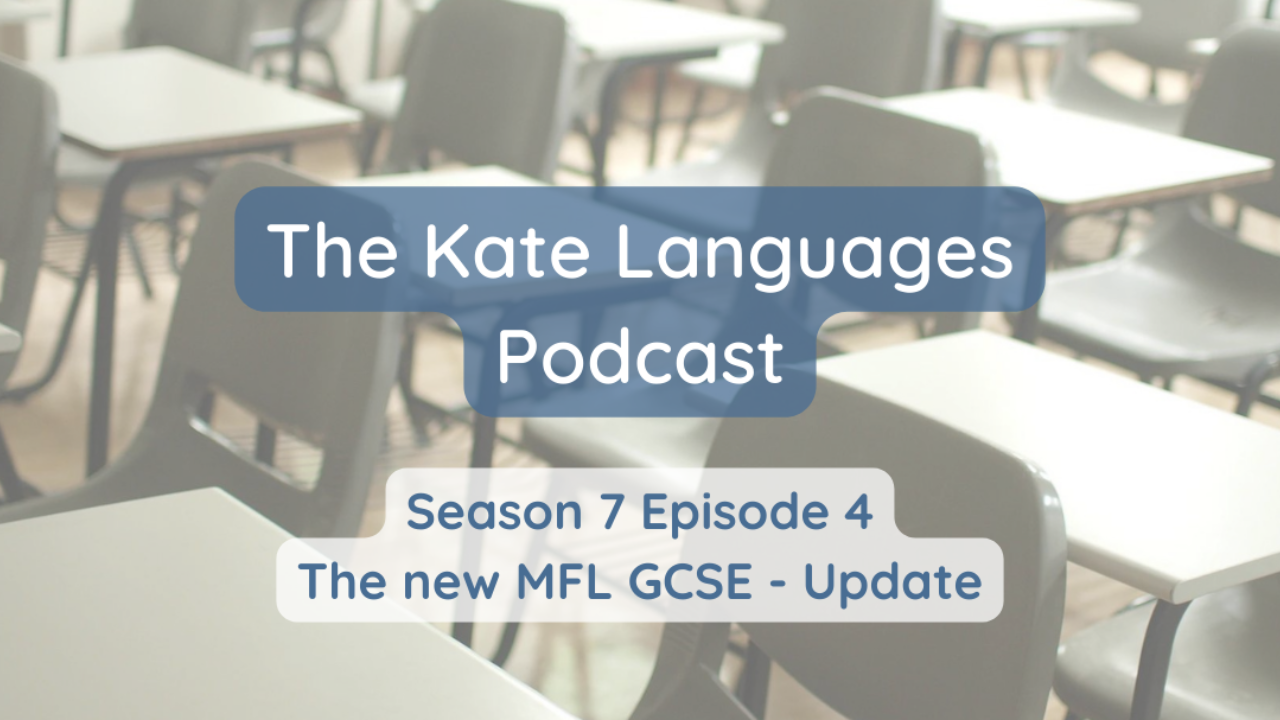The Kate Languages Podcast - S7 Ep4 - The New MFL GCSE - An Update
Feb 18, 2025
For the 4th episode of season 7 of the Kate Languages Podcast, released in April 2024, I gave an update on the new MFL GCSEs. Here is a summary of the episode - to listen to the episode in full, click "play" above.
The New MFL GCSE: Key Updates and Practical Implementation
After a year of delivering workshops, visiting schools and connecting with teachers about the new GCSE (first teaching September 2024, first exams 2026), here's what we've learned about implementing these changes effectively.
Adapting to Change: It's More Familiar Than We Thought
The initial reaction to elements like the prescribed vocabulary list caused understandable concern. However, closer examination reveals familiar territory organised in a new way. The vocabulary lists align with topics teachers have been covering for years, with some modern additions like 'celebrity culture'. While this presents new challenges, it's manageable within existing teaching frameworks.
The key changes to focus on are:
- Dictation tasks
- Read aloud speaking components
- Enhanced focus on phonics (Sound Symbol Correspondence)
- Modified speaking exam format with two photo tasks
The good news is that much of current teaching practice remains relevant. Rather than completely overhauling resources and methods, focus on adapting existing materials to incorporate these new elements.
Resources and Implementation
The new textbooks are beginning to emerge, with Oxford University Press materials available (£26 per textbook, Kerboodle at £375+VAT annually) and Pearson's coming in June 2024 (£28.99 per book, with 35% discount until September). While these offer comprehensive coverage of the new specification, schools can successfully continue with existing resources while supplementing specific new elements like dictation and phonics practice.
Reimagining Key Stage 3
Perhaps the most exciting opportunity lies in reconsidering our approach to Key Stage 3. With the new GCSE requiring only 1,200 words for Foundation and 1,700 for Higher, and assuming no prior knowledge, there's scope to create a more engaging curriculum. Consider:
- Incorporating more cultural content
- Exploring creative projects
- Using authentic materials like poems and short stories
- Following student interests more closely
While maintaining a focus on fundamentals, particularly phonics, this is an opportunity to build a more dynamic and culturally rich foundation before GCSE study begins.
Subscribe to the Kate Languages Podcast on Apple Podcasts here!
Stay connected with news and updates!
Join my mailing list to receive exclusive offers, freebies and to be the first to know about new resources and upcoming CPD workshops!

